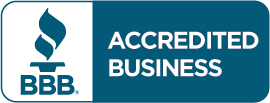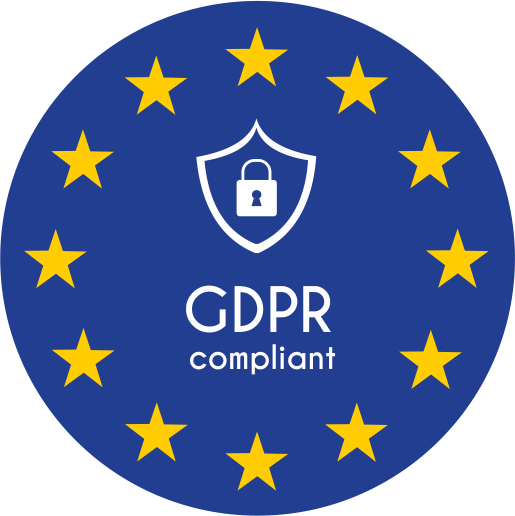by Charles Oropallo | Dec 19, 2018 | Internet, Introduction, Monadnock Shopper News, Shopper News, The CW Corner, Website Development, Website Updates, WordPress
Hosting is where your website physically resides on servers attached 24/7 to the internet. Here’s some info for finding a good web hosting company:
Local – Best sticking with local folks. Computers have glitches. Knowing someone who can explain issues is important.
Customer Service – Nothing’s worse than being ignored. Many companies don’t interact with their clients. Find one you can actually reach. Conversation shows if they can explain things in understandable terms.
Longevity – Ensure they’ve been at this a while. Lousy companies don’t generally survive the test of time. The longer they’ve been around the better they usually are at providing service.
Reliability – Backups are a must. Good hosters back up websites nightly. If your company is a reseller of services – a “middle man” – they’ve no control over servers. Avoid such an arrangement.
Security – Your host should perform regular server updates. WordPress sites require security updates as well. You should be able to perform those.
Contracts – Avoid contracts. Deal with hosters that allow you to quit when you want to. That way they’re always striving to provide good service – not just when it’s time to “renew” with them.
Contact us with questions. We’re glad to help.










by Charles Oropallo | Dec 12, 2018 | Email, Internet, Monadnock Shopper News, Passwords, Security, Shopper News, The CW Corner
Compromised email can be an important component of identity theft. People take much of today’s electronic communications for granted.
Think about what’s connected to your email accounts – activities like shopping and even online banking to name a couple. Hackers getting into your email can give them an open doorway into many aspects of your financial and personal life. The losses incurred through compromised email can be enormous.
Good security practices are great deterrents. Start by using strong passwords to mitigate such losses.
Wireless connections can be “sniffed”, meaning hackers can wait nearby and record the information being sent and received over the connection.
Always access your email using encryption. Encryption makes it close to impossible to decode the wireless traffic. With email clients like Outlook, Thunderbird, Apple Mail or even a mail apps on phones, make sure encryption is turned on. With webmail through web browsers be careful to access it using https:// to ensure an encrypted email server connection.
Free wireless hotspots are a haven for hackers. You are pretty safe as long as you are using encrypted connections.
If you don’t understand how to set up and use encryption, call your web hosting, email or device provider for help. Don’t risk potential losses.










by Charles Oropallo | Dec 5, 2018 | Do-It-Yourself, Domains, Email, Internet, Introduction, Monadnock Shopper News, Security, SEO, Shopper News, The CW Corner, Website Development, Website Updates, WordPress
Here we are in the Shopping Season. Lots of business people talk about shopping local. Many don’t walk the talk. Shopping local works when it’s a reciprocal process – when we buy from each other. It isn’t always feasible – but making a best attempt is beneficial for most – and noticed.
The web is mostly about business. Stuff gets sold. It’s about making sales directly online and/or encouraging brick and mortar store visits.
I’m a strong proponent of local shopping. As a web guy – not a financial expert – common sense tells me spending my money in another part of the country (or the world) prospers THAT place at my neighborhood’s expense. Many businesses justify shopping elsewhere for web related services because they’re simply price shopping. Is that really the best deal?
Ask yourself “What is new business worth?” One single piece of business in a year due to a direct referral from your web vendor (or its employees) usually more than covers any perceived difference in web costs. Even if that business is the vendor itself.
Ask us WHERE you’re hosted so you know WHERE your web services money goes. Plenty of truly local businesses are right around you to do local business with.










by Charles Oropallo | Nov 28, 2018 | Do-It-Yourself, Domains, Internet, Monadnock Shopper News, SEO, Shopper News, The CW Corner, Website Updates, WordPress
Do-it-yourself website builders make it sound SO easy! And they can be. But there can be a steep price to pay.
I see ads every now and then boasting about how you can build a website in an evening with no previous experience. Several times a month we have people who have fallen into that trap, then contact us to help them out of it.
The biggest issue with these do-it-yourself sites is that you don’t own your site! The platform/servers the site is built on is proprietary – so you’re locked in to that company. Couple that with the fact that the site can’t be easily customized. Also, your site looks like numerous others. Many of these sites are not found well in the search engines. They have layers of coding that makes it easy to make changes but harder for the search engines to “see” what they’re about.
Do-it-yourself sites are generally not through local companies either. So if doing business with local people who will send business back to you is important – that’s another reason to avoid them.
When thinking of having a website built, take the time to ask a developer about options. Simply ask, “Do I own my website?”










by Charles Oropallo | Nov 21, 2018 | Email, Internet, Monadnock Shopper News, Security, Shopper News, The CW Corner
We get many questions about spam (Junk E-mail). Spam clutters up your email. It’s also used to deliver online scams and malware/viruses.
A common question is “Any idea of why I’m seeing spam emails in my Inbox?” Spammers most likely got your email address from your friends or acquaintances – people you know and correspond with – whose computers or phones were compromised. Their contact lists get added to the spammers lists. Spammers also get emails from when we purchase online and from finding email addresses on websites.
Spam is difficult to avoid. One way to handle it is to hit the delete key. That’s much the same as just throwing junk mail away that’s delivered by the mail carrier.
However, spam email can be filtered. The good news is that better than 98% can be filtered into a junk email folder.
One filtering problem is determining which are actually spam – Home Depot, Lowe’s, Staples or other vendors are spam to many and not spam to others. Good mail servers allow users to “mark” items as not spam in that case.
There are numerous email servers that behave in just as many ways handling spam. If spam is an issue, check with your email provider about your options for handling it.
Charles Oropallo (Charles@CharlesWorks.com) started CharlesWorks in Peterborough NH in 1998. His team does website design, hosting, search engine optimization (SEO) and related web services.













 European Union General Data Protection Regulation Compliant
European Union General Data Protection Regulation Compliant